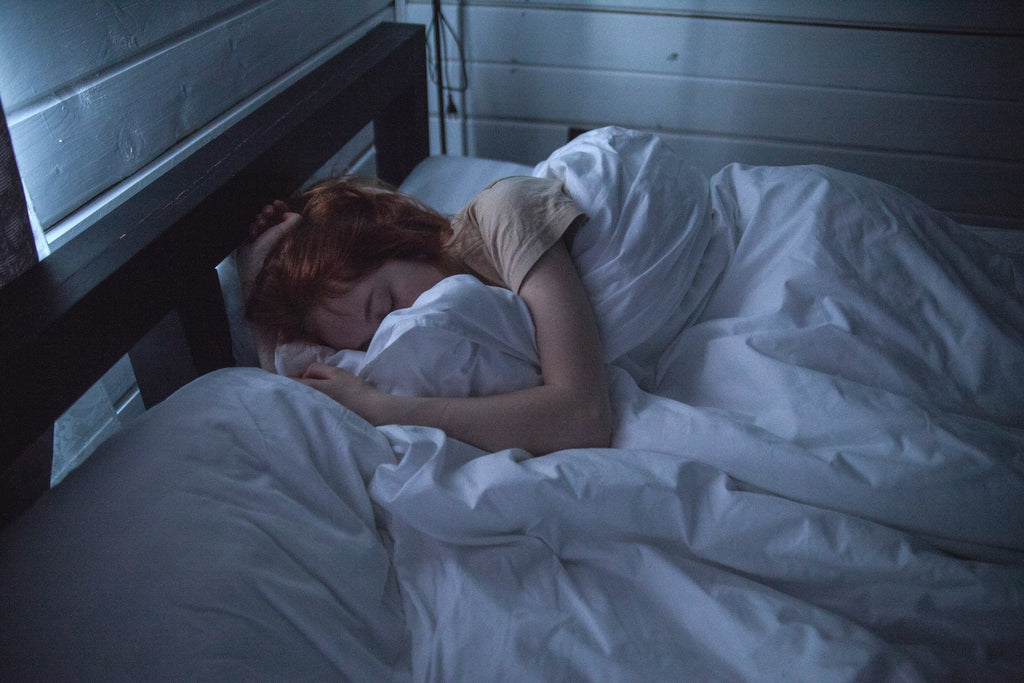
Your Sleep Problems Could be Affecting Your Child's Sleep Patterns


Some parents love bedtime; It means they can finally kick off their shoes and relax. Other parents dread the thought of bedtime, knowing it comes with an hour-long ritual of begging their child to stay in bed with their eyes closed. If you have kids, you know that bedtime can be quite an arduous process on occasion. But did you know that your sleep problems could be affecting your child’s sleep patterns?
If You’re Sleepless, Your Child May Be As Well
A recent study in the scientific journal Sleep Medicine discovered that childhood insomnia can have a direct relation to parental insomnia. They found that parents, especially mothers, who suffer from insomnia and parents who exhibit insomniac behaviors such as late-night tv and internet binges impart these behaviors onto their children. The study concluded that children with nocturnally-active parents fail to get the adequate amount of sleep required by their age group.
According to the National Sleep Foundation, children under the age of 14 should be getting at least 9 hours of sleep per night. Children lacking proper sleep tend exhibit even more resistance to bedtime due to a frustration at being so tired. This is referred to as “over-tiredness”. Over-tiredness can snowball the problem, causing serious issues in your child’s behavior if left unchecked. It is recommended that you seek help from your child’s pediatrician concerning this behavior.
At this point you may be a little worried, but there’s no need to fear. If your child is having trouble sleeping, the solution could be as easy as getting the recommended hours of sleep for yourself. Here are a few tips to help you sleep through the night to keep your sleep problems from affecting your child’s sleep patterns.
Curb Sleep Problems: Stick to a Schedule
Have you ever tried to sleep in on the weekend only to wake up naturally at your regular weekday time? The human body loves routines. Set a bedtime for yourself and your kids... then stick to it. If you set a designated time to get in bed, after awhile you will find that your body naturally wants to go to bed at that time and it will help you to set up healthy sleep patterns. The same will work with your kids. If you have a regular schedule, your kids will be more likely to stick to their schedule.
Sleepless? Try Stretching
It may seem odd, but stretching before bed can have a positive impact on your sleep routine. Stretching in a calming manner helps relax your muscles and takes your mind off of the worries of the day. If you already include yoga in your daily routine, try doing a few of your favorite poses. Also, try some breathing exercises to help calm yourself. Some deep breaths will help soothe you into a resting mindset that can help calm your mind into a deep and restful sleep.
Minimize Screen Time
I know it may be difficult in today’s tech-oriented world, but studies have shown that extended periods of screen time within an hour of bed can have a negative effect on sleep. The blue light emitted by most modern screens causes what scientists call a “circadian shift”, which means your body’s internal clock resets to think it is still day time. Even if you are dead-tired, you will have trouble falling asleep after this shift. It affects children too, so make sure your kids are off their phones and away from the TV before bedtime as well. Screens are so integrated into our life that it can be tricky to avoid them, but you will notice a big impact on your sleeping patterns.
Fix Your Sleep Problems: Conclusion
Ultimately, your sleep problems could be affecting your child’s sleep patterns in a negative way, but following these few easy steps can help! If you have healthy sleeping pattern and routines, your child is more likely to do the same. Keep yourself and your child to a solid, routine sleeping schedule. Turn off your electronics at least an hour before bed, you will notice your body and your child are both more willing to accept bedtime as sleep time. Also, if you are having trouble sleeping, make sure that your bedding doesn't need an upgrade! A soft pillow, a cooler comforter, or a new mattress could be the key to getting back to a better sleep schedule.
Hopefully you were able to learn something to help you and your child sleep better at night. If you have other tips and tricks, be sure to let us know in the comments below!
To learn more about how to get your kids to sleep, take a look at our Best Ways to Develop a Bedtime Routine for Kids blog, it is full of some great tips! Also, if you have a newborn or infant that isn't sleeping through the night well, take a look at our 10 Tips To Help Your Newborn Baby Sleep blog.




